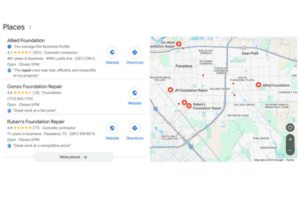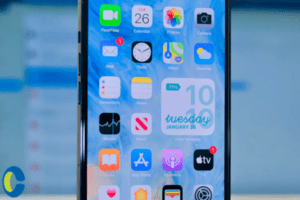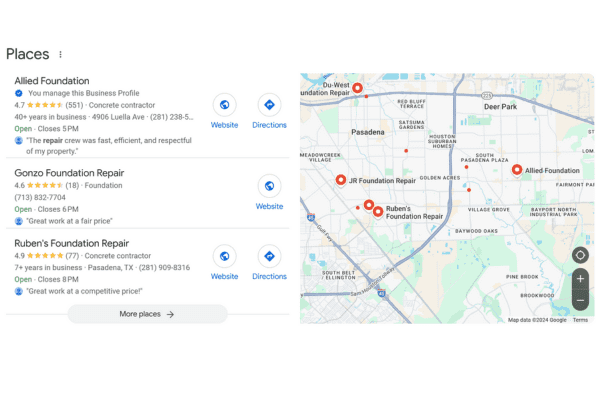Marketing and customer service are two sides of the same coin. Your marketing team brings customers in, and your customer service team keeps them there. In many companies, the two groups rarely interact, even though they have some overlapping responsibilities, tasks, or goals. But there are plenty of great reasons for you to have your marketing and customer service teams collaborate.
Both teams handle the customer and see different sides of them. Each department has a lot that they can learn from each other. As the world is increasingly becoming more up close and personal with the rise of social media, customers are coming to expect a much more personalized experience with the brands they follow. Social media is one area where marketing and customer service overlap.
A large portion of marketing is done on social media accounts now. And customers are increasingly turning to social media to ask questions and interact with brands. It makes complete sense to have your marketing and customer service teams set aside some time weekly or even daily to collaborate.
Here are some ways that they can work together to contribute to your brand’s growth:
Content Creation
Marketing teams are always creating content strategies for the upcoming weeks and months. One particular type of social media content that is received well by customers is user-generated content (UGC). This is content such as testimonials, product demonstrations by customers, and photos taken by customers that the brand posts to promote their product or service. And who better to identify customers to provide such content than your customer service team? Customer service agents work the closest with your customers and provide valuable insight into who your customers are and what they love or don’t love about your products or services.
They’re a fantastic resource to find customers who are excited about your products and would be willing to give a testimonial or submit a picture to your company’s social media site. Additionally, your customer service reps are the ones who will know if your customers have found a creative new way to use your product that they didn’t intend for – but that works. Passing insider information such as this to your marketing team could give them new ideas for how to market your product to a new audience you may have never considered before.
Social Media Customer Support
As we mentioned before, social media is quickly blurring the lines between marketing and customer support. Customers are using social media to not only learn about brands and their promotions, but also to contact the company with concerns, questions, or complaints. When your marketing and your customer service teams collaborate, they can offer comprehensive and quick responses to your customers.
To make sure that your customer questions and comments are getting addressed as quickly as possible, you’ll want to have clearly defined processes and responsibilities between the two teams regarding who interacts with customers on your social media platforms. Decide who will be able to log in to your accounts and directly respond to customers to make sure nothing falls through the cracks. Whoever ends up being responsible for directly interacting with your customers on social media, a collaboration between the teams is vital to make sure customers do not get missed and that the messaging customers are receiving is consistent across all fronts.
Some customer interactions on social media will need to be escalated to a private message or a phone call with a rep to make sure potentially private information isn’t revealed, but most questions or comments can be quickly answered with minimal effort or time. If you have a customer who asks about a particular policy for your company, for example, your marketing team can easily use your brand’s social media site to respond with a link to a relevant page or article on your website.
When your two teams work closely together to make sure customers are being answered quickly and politely, it will improve the customer experience dramatically. And great, responsive interactions with your followers on social media can act as a form of marketing in itself by establishing your brand as responsive, approachable, and in touch with your audience’s needs.
Better Quality Feedback
Customer service teams are the ones who hear when customers are upset or confused. They interact with customers and hear a variety of feedback. They work closely with your clients or customers to find out what about your product or service works for them and what doesn’t. This can be especially helpful during promotions or campaigns that your marketing department is running. Your customer service team is on the front lines of customer interaction.
When customers contact your company with questions or problems or comments, your customer service team is the one to respond. Due to working in close proximity with your customers, your service team will be able to identify key feedback, such as if the wording on a particular campaign is confusing. They can then relay this feedback to your marketing team to consider for future promotional campaigns.
Get to Know Your Customers
Closely related to the last point, your customer service representatives can give your marketing team an intimate look at who exactly your customers are. Because they interact with customers on a personal level, your customer service team can provide your marketing team a better understanding of your target audience. Perhaps one segment of the population you had intended to market is reporting frequent dissatisfaction with your product.
But maybe there are some customers from a demographic group you hadn’t considered before who are really into your product. This information could help your marketing team better understand your ideal customers and target their marketing campaigns accordingly.
Consistent Messaging
A disconnect between marketing and customer service departments often means that customer service agents are caught unawares by a sudden influx of questions about a marketing promotion they didn’t know was running. Ensuring that your customer service team has up-to-date information about what the customers are seeing will help them provide stellar customer service and be prepared for the kinds of questions and comments they’ll get.
Consistent messaging is also important to make sure that customers are not being frustrated by potential misunderstandings or miscommunication. If a marketing promotion promises something that your customer service team can’t deliver, you’ll have some frustrated customers. Making sure these two teams collaborate and keep each other up-to-date is important to the success of your business and the quality of interactions you have with your customers.
The goal of any business is to attract and retain customers. You want your marketing team to deliver captivating marketing campaigns that draw in new customers and keep current customers coming back. And you want a customer service team to provide stellar service that will keep customers satisfied and loyal to your brand. Because both sides interact with customers, making sure that they collaborate will not only vastly improve your customers’ experiences but will also make your company operate more efficiently and smoothly.















